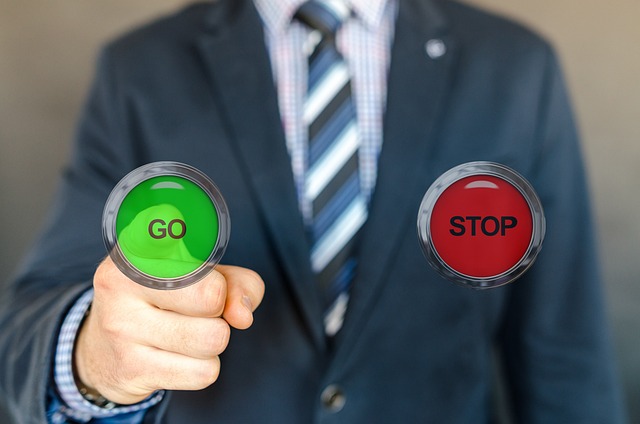Understanding Self-Awareness
Self-awareness implies an understanding of your own thoughts, emotions, and motivations. It’s the ability to comprehend how you perceive yourself and how others perceive you. This profound understanding frequently aligns with enhanced emotional intelligence, which further enables you to navigate through life’s complexities more smoothly. When you foster self-awareness, you cultivate a better connection with your emotions. You learn to recognize not just what you feel but why you feel it. Understanding the reasons behind your feelings helps you respond rather than react, paving the way to better emotional regulation.
Moreover, self-awareness is a critical component of personal growth and self-improvement. It acts as a mirror reflecting your strengths and weaknesses. As you acknowledge these aspects, you lay the groundwork for individual development. For example, if you realize you struggle with team collaboration, you can actively seek to enhance your cooperative skills. Being self-aware allows you to take charge of your journey toward self-improvement. It’s not merely about recognizing your faults; it’s about using that knowledge to fuel your growth. This understanding fosters not just personal success but also enhances your relationships and interactions with others.
The Connection Between Self-Awareness and Decision-Making
Let’s shift our focus to the relationship between self-awareness and decision-making. Imagine finding yourself at a crossroads; multiple options lay ahead, each with its own set of potential outcomes. When you possess self-awareness, you tend to evaluate these decisions more effectively. You consider your values, your beliefs, and your emotional responses to each option. This thoughtful approach leads to making choices that resonate with your authentic self.
When you understand your motivations, you can distinguish between choices driven by fear, societal pressure, or your true desires. Picture someone applying for a job simply to please their parents. A self-aware individual, however, might explore their genuine interests and aspirations. As a result, they make informed decisions that align with their values. Self-awareness equips you not just to weigh pros and cons but also to filter your choices through a lens of authenticity. You start making better decisions, not merely by chance but by a conscious commitment to act in alignment with your true self.
Enhancing Self-Awareness for Better Decisions
Now, let’s talk about how to enhance self-awareness to facilitate better decision-making. One effective strategy is reflective journaling. By dedicating time each day to write down your thoughts and feelings, you create a space to explore your inner workings. You may start by observing your emotional responses throughout the day. Over time, this practice unveils patterns and themes in your thinking, which leads to deeper self-understanding. You can analyze why certain situations trigger specific emotions and how they influence your decision-making.
Mindfulness meditation is another powerful tool for fostering self-awareness. It encourages you to stay present, live in the moment, and approach your thoughts without judgment. As you become more attuned to your emotions, you also start to recognize automatic reactions and thought patterns. For instance, someone who feels anxious before making a decision can use mindfulness to calmly observe that anxiety without letting it dictate their choices. This practice allows you to create a space between your emotional responses and your actions, enabling you to make choices with clarity and intention.
How Self-Awareness Influences Relationships
Self-awareness doesn’t only influence individual decision-making. It also plays a critical role in shaping how you interact with others. Healthy relationships thrive on effective communication and emotional intelligence, both of which stem from self-awareness. Consider a situation where you find yourself in a disagreement with a partner or friend. A self-aware individual takes a moment to pause and reflect on their feelings and thoughts rather than reacting defensively. They recognize their emotions as valid yet not necessarily accurate reflections of the other person’s intentions.
This heightened level of awareness enables you to engage in constructive dialogue. Instead of placing blame, you can express your feelings and needs while remaining open to the other person’s perspective. Essentially, self-awareness cultivates compassion and empathy, which are vital in nurturing healthy relationships. You learn that your emotions are often a product of your experiences and beliefs, and that everyone holds their unique set of perspectives. This recognition transforms arguments into opportunities for growth and understanding.
Practical Techniques to Develop Self-Awareness
Incorporating practical techniques to develop self-awareness can significantly enhance your decision-making skills. One such technique is seeking feedback from trusted friends or colleagues. Often, people around you may notice patterns or behaviors that you might overlook. They can provide insights about how you come across in different situations. When you seek feedback, approach it with an open mind. It’s essential to differentiate constructive criticism from baseless judgments. By incorporating feedback into your self-reflection process, you create broader insights into your behaviors and decision-making tendencies.
Another useful technique is setting aside time for self-reflection, perhaps weekly or monthly. In these sessions, you can examine your past decisions. Ask yourself questions about what went well and what didn’t. Were your choices aligned with your values? Did you act out of fear or authentic desire? Revisiting these decisions allows you to learn valuable lessons which can direct your future choices. Self-reflection fosters growth; it helps you remember that mistakes are not failures but stepping stones to better decision-making.
The Impact of Self-Awareness on Career Growth
Self-awareness carries immense weight in the workplace, influencing not only your decisions but also your overall career growth. When you understand your strengths, you can leverage them for advancement. For instance, if you recognize that you excel in team environments, you might seek roles that emphasize collaboration or leadership positions that allow you to shine. Conversely, a lack of self-awareness can lead to career stagnation, where you remain stuck in roles that don’t align with your abilities or interests.
Moreover, self-awareness facilitates better interactions with colleagues, enhancing your networking capabilities. When you’re aware of how you come across, you can tailor your communication to be more effective. This awareness helps you build rapport with others and opens doors for collaborative opportunities. On the other hand, if you’re oblivious to your impact on others, your professional relationships may suffer, which could hinder your career progression.
Self-Awareness and Decision Fatigue
In today’s fast-paced world, decision fatigue is a prevalent issue. The more decisions you make throughout the day, the more your brain tires. Self-awareness can help mitigate this fatigue by enabling you to prioritize what truly matters. When you cultivate a strong understanding of your values and goals, you streamline the decision-making process. For example, if health is a core value, you’re less likely to waste time debating whether to exercise or indulge in unhealthy snacks. You can intuitively align your decisions with your priorities, which conserves energy and leads to better outcomes.
Additionally, self-awareness allows you to recognize when you’re feeling fatigued and make adjustments accordingly. You may choose to defer less critical decisions until you feel more mentally refreshed. This practice can minimize the risk of making hasty, uninformed decisions that may lead to regret. Instead of succumbing to the pressure of making instant choices, you learn to value pause and reflection, allowing for more mindful decision-making.
Self-Awareness in Personal Finance
Finally, self-awareness significantly influences your choices in personal finance. Financial decisions often stem from emotional responses—whether it’s the impulse to buy something simply because it’s on sale or the anxiety that drives you to save excessively. When you cultivate self-awareness regarding your financial behaviors, you recognize these patterns. For instance, perhaps you spend money to cope with stress. Identifying that behavior enables you to address the root cause rather than allowing it to dictate your financial health.
A self-aware individual is likely to create a budget that genuinely reflects their spending habits and financial goals. They understand the importance of distinguishing between needs and wants, guiding them to make informed financial decisions. Such clarity helps mitigate anxiety around spending and creates a healthier relationship with money. As you become more self-aware, you transform not just your decision-making abilities but your overall approach to life’s complexities.
FAQs
- What is self-awareness?
Self-awareness is the ability to recognize and understand your own thoughts, emotions, and motivations. It encourages you to reflect on how you perceive yourself and how others perceive you.
- How does self-awareness lead to better decision-making?
Self-awareness helps you evaluate decisions in alignment with your values. It allows you to distinguish between genuine desires and external pressures, leading to more authentic choices.
- Can self-awareness improve my relationships?
Absolutely! Self-awareness enhances communication and empathy, allowing you to engage in constructive dialogues and nurturing healthier relationships.
- What are some techniques to develop self-awareness?
Techniques include reflective journaling, seeking feedback from others, practicing mindfulness, and setting aside time for self-reflection to analyze past decisions.
- How does self-awareness help in managing decision fatigue?
Self-awareness allows you to prioritize decisions based on your values, streamlining the process and helping you conserve energy for more important choices.



